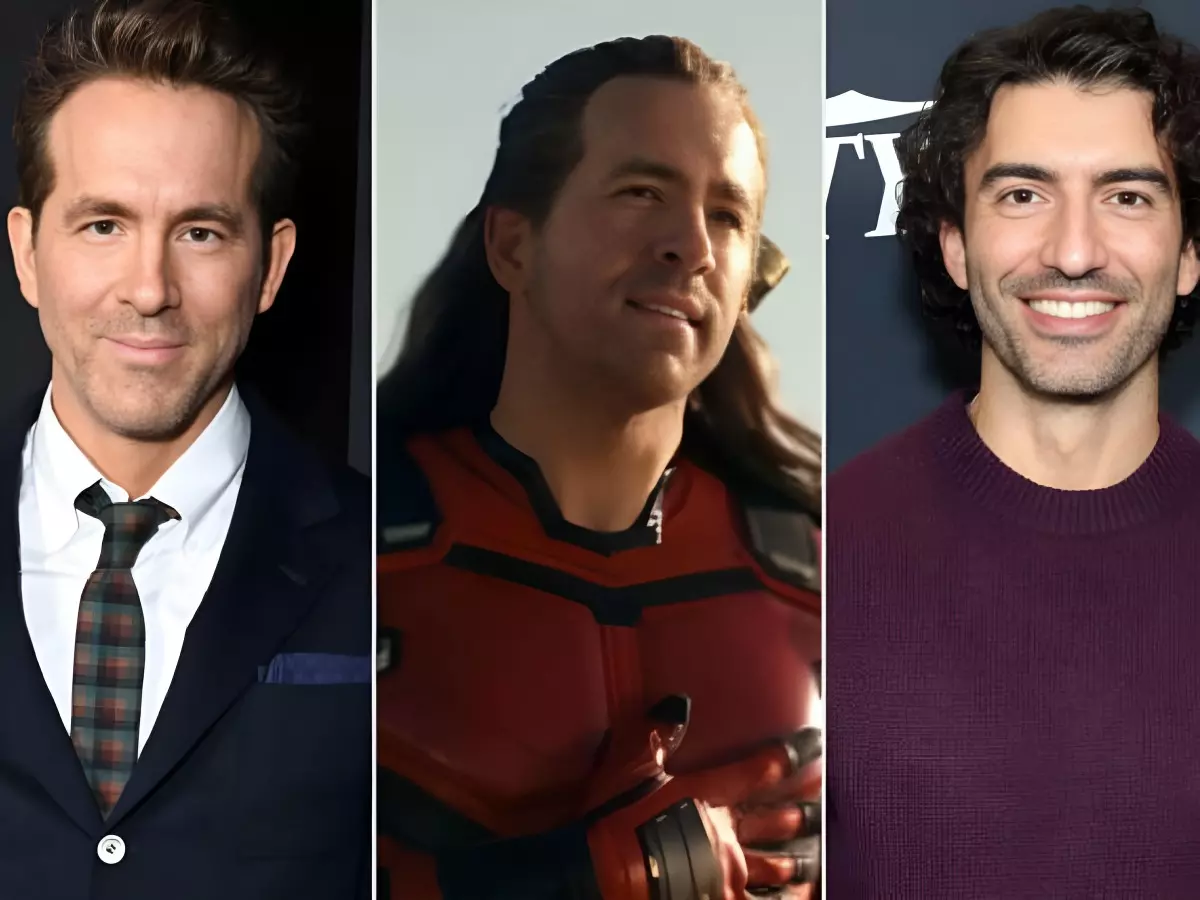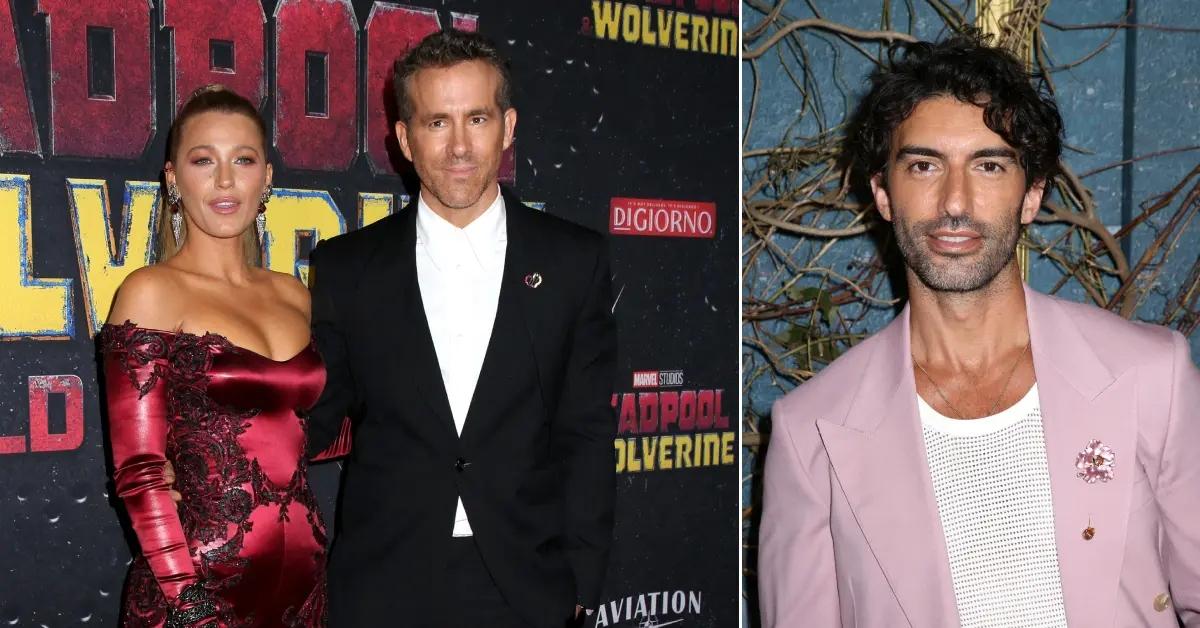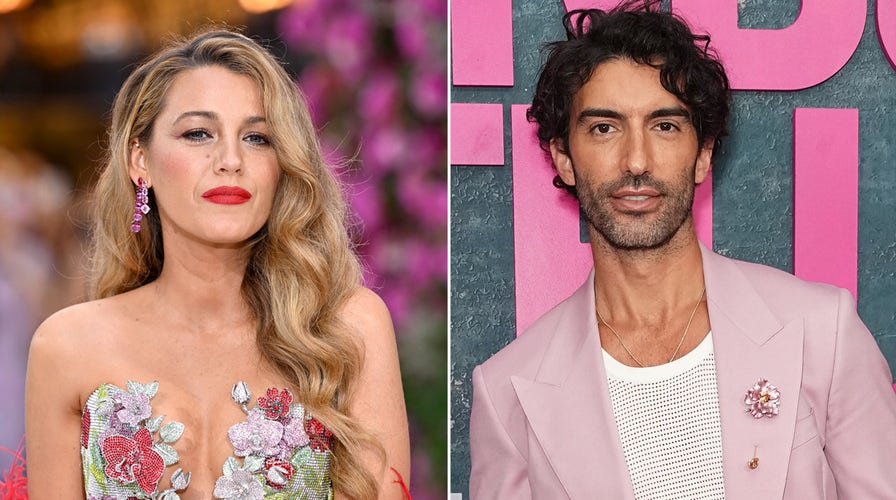A significant legal battle is now unfolding in Hollywood, as actor Justin Baldoni has taken legal action against Ryan Reynolds and Blake Lively following a scene in Deadpool & Wolverine that has sparked widespread controversy. Baldoni’s lawyer, Bryan Freedman, sent a formal letter to key figures at Disney, Marvel, and Deadpool director Tim Miller, signaling his client’s intent to pursue legal claims against the couple and their collaborators. The letter, which was sent on January 7, 2025, demands that all relevant documents related to the creation and development of the Nicepool character be preserved, particularly those involving the controversial scene that has put Baldoni at the center of a public dispute.
Here's ads banner inside a post
The legal notice, which was addressed to Disney CEO Bob Iger, Marvel President Kevin Feige, and Tim Miller, specifically requests the preservation of all materials tied to the development of Nicepool, a character introduced in the Deadpool film. Freedman asserts that Baldoni intends to file claims against Reynolds, Lively, and others involved in the film’s production, accusing them of using the Nicepool character to mock and harass Baldoni. The letter outlines the concern that the character, which appears in the film wearing a man bun and making a variety of jokes, could be seen as a direct reference to Baldoni, potentially defaming him in the eyes of the public.
The Controversial Scene that Sparked the Legal Dispute
The scene in question, which has been heavily discussed on social media and in entertainment news, features Nicepool making a series of comments that many perceive as insensitive. In the moment, Nicepool remarks about Ladypool, saying, “Oh my goodness, wait until you see Ladypool. She is gorgeous. She just had a baby, too; you can’t even tell.” Deadpool, portrayed by Reynolds, responds, suggesting that perhaps such remarks shouldn’t be made in a public setting. Nicepool, in turn, insists that it is fine, identifying himself as a “feminist” in the process. While the scene was intended to inject humor into the film, it has now become the focal point of the legal conflict, with Baldoni’s team accusing the filmmakers of crossing a line into mockery and harassment.
Here's ads banner inside a post
Baldoni’s legal team argues that the portrayal of Nicepool may have been intentionally designed to ridicule Baldoni, with particular attention paid to his appearance and personal life. The request to preserve documents related to the creation of the character is aimed at gathering evidence to support this claim. The letter from Freedman also mentions that they are investigating how the character was conceived, including any communications that might suggest an intent to mock or belittle Baldoni. This has led to an increasingly tense atmosphere surrounding the production and the public perception of Deadpool & Wolverine.
The Bigger Picture: Artistic Expression vs. Personal Boundaries
At the heart of this legal dispute lies a significant question about the limits of artistic freedom and the respect for personal boundaries in Hollywood. Deadpool is known for its irreverent, boundary-pushing humor, with characters often engaging in self-aware, satirical commentary that targets a wide array of subjects. However, with the emergence of Baldoni’s legal claim, the question arises: when does comedy cross the line into personal attack?
Here's ads banner inside a post
For Baldoni, the concern is not just about the portrayal of his character, but also about how the portrayal may influence public perception of him. As a public figure, Baldoni has a right to protect his reputation, especially when he believes that his image has been misrepresented for comedic effect. The notion that a fictional character could be used to publicly mock or ridicule an actor, particularly in a film that millions of people will see, is a serious matter, and it is clear that Baldoni intends to take a stand against what he perceives as an injustice.
On the other hand, the creators of Deadpool have long defended the franchise’s irreverent humor as part of its core identity. The character of Deadpool, played by Reynolds, is known for his ability to make jokes at the expense of various targets, often using satire to poke fun at the world around him. The inclusion of characters like Nicepool is intended to amplify the comedic tone of the film, which has always been about pushing boundaries and playing with the absurd. However, with this new legal challenge, the future of such characters in the Deadpool universe could be in jeopardy, as filmmakers may be forced to reconsider how far they can go with their humor.

Potential Consequences for the Deadpool Franchise
The legal action being taken by Baldoni has the potential to cause significant ripple effects in Hollywood, particularly for the future of the Deadpool franchise. If Baldoni’s claims are substantiated, the filmmakers may have to reassess how they handle characters and scenes that involve real-life figures, especially when it comes to characters who might bear similarities to actual people in the public eye. This case could set a legal precedent for how parody and satire are approached in Hollywood, especially in the context of well-known public figures who might take issue with how they are portrayed.
Additionally, the controversy could have a wider impact on the creative process behind Deadpool and its future spin-offs. As Hollywood becomes more sensitive to the potential for defamation or misrepresentation, there may be a shift in how characters are written and how comedic content is framed. Filmmakers might be more cautious in the future when developing characters who could be seen as caricatures of real people, especially when those characters are meant to serve as comedic relief or as a tool for satire.

A Growing Public Debate Over Hollywood’s Use of Satire
Beyond the courtroom, the Baldoni-Reynolds legal drama has sparked a broader conversation about the ethics of satire in Hollywood. The internet has become a battleground for fans and critics to debate whether the Deadpool scene crossed a line. Supporters of the film argue that it is simply a playful moment in line with the series’ typical humor, while others believe that it unfairly targets Baldoni and perpetuates harmful stereotypes. The disagreement highlights a growing divide in how different audiences interpret comedy, particularly when it involves public figures.
As the case unfolds, many are left wondering whether the Deadpool franchise will adjust its tone or continue to embrace the edgier, often controversial humor that has defined it. What is clear, however, is that the ongoing legal battle will have lasting implications for the way Hollywood approaches satire, parody, and the boundaries between comedy and personal harm.
The Role of Legal Action in Hollywood’s Creative Landscape
Bryan Freedman’s involvement in the case underscores the increasing role that legal professionals play in navigating disputes between public figures and the entertainment industry. Freedman, known for representing clients in high-profile cases, has made it clear that Baldoni’s legal team is serious about holding Reynolds and the Deadpool filmmakers accountable. The demand for document preservation is just the beginning of what could become a lengthy legal process, with significant consequences for all parties involved.

In Hollywood, where creative expression and personal reputations often collide, the outcome of this case could help redefine the balance between the two. If Baldoni’s claims lead to a settlement or court ruling in his favor, it could signal a shift in how filmmakers and actors approach the portrayal of real-life individuals in fictional narratives.
Fans React to the Deadpool Controversy: Mixed Opinions on the Scene
The legal proceedings surrounding Baldoni and Deadpool have not gone unnoticed by fans, many of whom have expressed mixed opinions about the situation. Some argue that the scene is a harmless joke and that taking legal action over it is an overreaction. Others sympathize with Baldoni, viewing the portrayal as an example of Hollywood’s tendency to mock and exploit real people for comedic effect. The wide range of reactions from fans demonstrates how humor, especially in the context of well-known celebrities, can be a deeply divisive issue.
As the legal battle continues to develop, it remains to be seen whether the Deadpool franchise will make any adjustments to its content in response to the controversy, or if it will continue to embrace the bold, irreverent humor that has made it a cultural phenomenon. What is certain is that the outcome of this case could have a lasting impact on how comedy is approached in Hollywood, especially when real people are involved.



